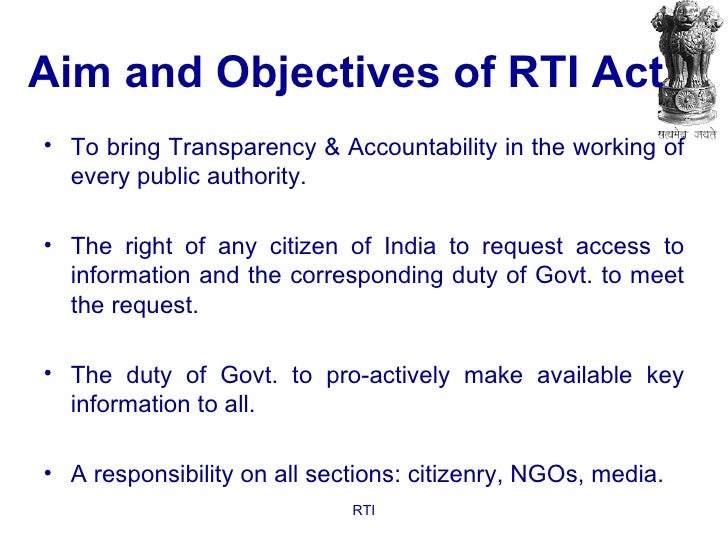
Rti Act
The RTI Act has over-riding effect vis-à-vis other laws inasmuch as the provisions of the RTI Act would have effect notwithstanding anything inconsistent therewith contained in the Official Secrets Act, 1923, and any other law for the time being in force or in any instrument having effect by virtue of any law other than the RTI Act.

Changes in RTI Act are need of the hour
The RTI Act is regarded as one of the most successful laws of independent India. It has given ordinary citizens the confidence and the right to ask questions of government authorities. According to estimates, nearly 60 lakh applications are being filed every year. It is used by citizens as well as the media.
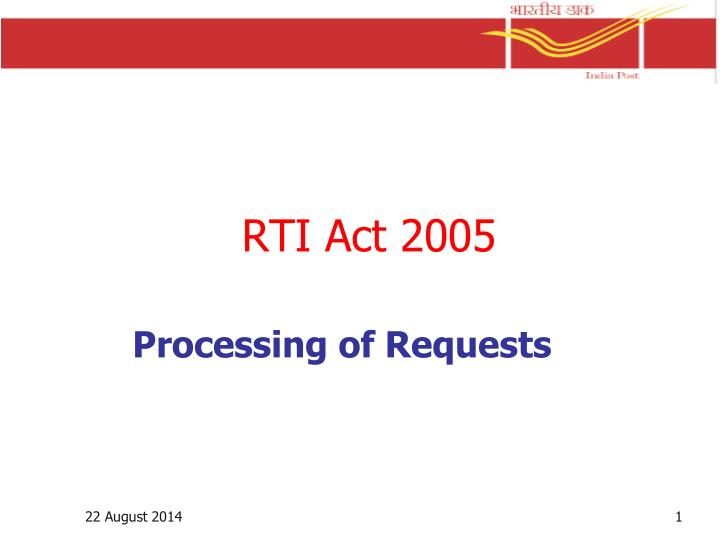
PPT RTI Act 2005 PowerPoint Presentation, free download ID3411913
RTI Guides and Handbooks; Compendium of Best Practises on RTI (Vol-I) Compilation of OMs & Notifications on RTI; Guidelines for suo motu disclosure under RTI Act, 2005 by Central Govt. Guidelines for suo motu disclosure under RTI Act, 2005 by State Govt. Reports on National workshop 2014; Reports on Regional workshop 2014; Filing online RTI.

RTI Act amendment Former information commissioners, activists criticise government move APN Live
What is Right to Information Act. Right to Information empowers every citizen to seek any information from the Government, inspect any Government documents and seek certified photocopies or samples thereof. You must know the basics of the Act before you are able to file an RTI. We have narrated the basic details for you.
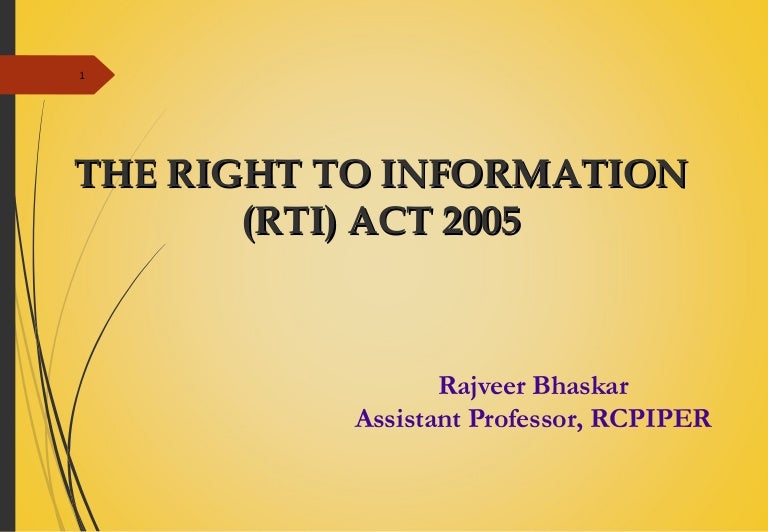
RTI Act 2005
The RTI Act's Characteristics: Section 1(2): It covers the entire country of India, excluding the state of Jammu and Kashmir. Section 2: Records, documents, memos, e-mails, opinions, advice, press releases, circulars, orders, logbooks, contracts, reports, papers, samples, models, data material held in any electronic form, and information relating to any private body that a Public Authority.
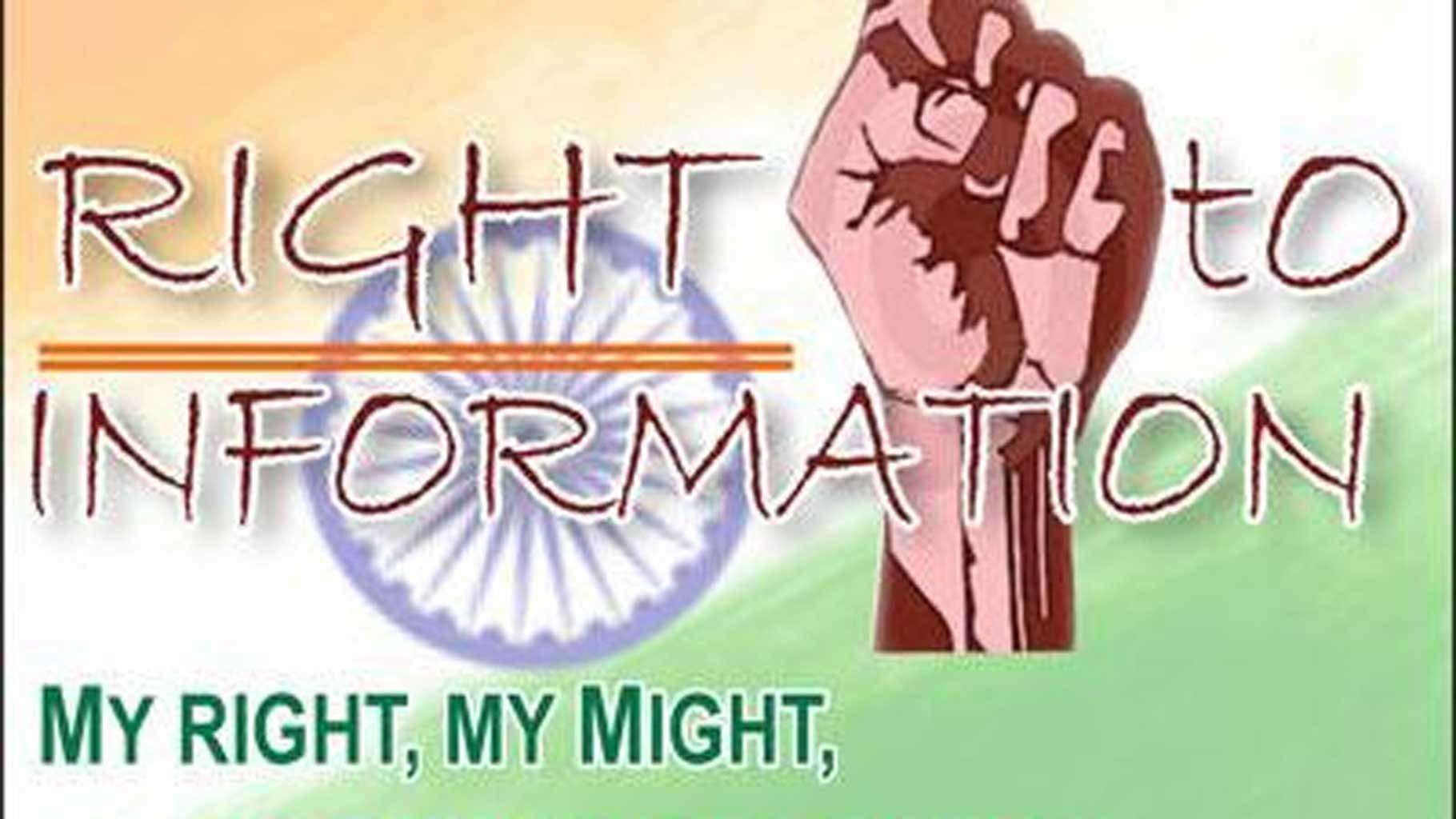
What is RTI Act, all you need to know about RTI act Business Insider India
This Act may be called the Right to Information Act, 2005. (2) It extends to the whole of India except the State of Jammu and Kashmir. (3) The provisions of sub-section () of section 4, sub-sections () of section 5, sections 12, 13, 15,16, 24 , 27 and 28 shall come into force at once, and the remaining provisions of this Act shall come into.
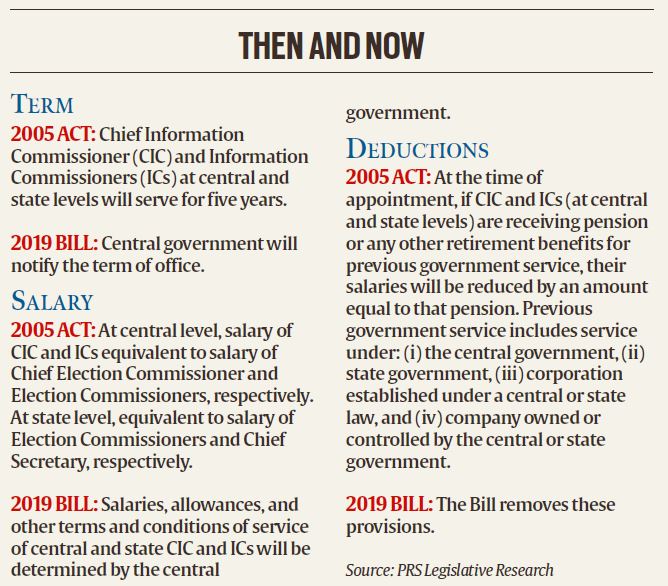
Explained What has changed in RTI Act? Why are Opposition parties protesting? Explained News
Browse millions of royalty-free images and photos, available in a variety of formats and styles, including exclusive visuals you won't find anywhere else. Videos Check out millions of royalty‑free videos, clips, and footage available in 4K and HD, including exclusive visual content you won't find anywhere else. Illustrations

What is Right to Information [Right to Information Wiki]
A. The Right to Information Act, 2005 is the latest and current act of right to information in India. It was enacted by the Parliament of India on 15 June 2005 and came into effect on 12 October 2005. The Act replaced the erstwhile Freedom of Information Act, 2002, and aims to provide a framework for citizens to secure access to information.

Right to Information Act, 2005 An Analysis
December 16, 2022 12:30 am | Updated 12:09 pm IST Sonikka Loganathan COMMents SHARE READ LATER People at an RTI office in Bengaluru. File | Photo Credit: The Hindu The Right to Information.

Amended RTI Act Comes Into Force From 24 October, Says Govt
The RTI Act allows any citizen to make requests for access to data, documents, and other information in the government's possession. India's RTI Act has been commonly cited as among the.

RTI Surprise MP Man Receives 40,000Page Reply, Documents Filled His Car Inventiva
Dec 23, 2020, 18:59 IST. Expanded as Right To Information Act, RTI means that any Indian citizen can request any information (which is supposed to be public knowledge) from the offices and.

Disclosure of interest in information sought under RTI Act necessary to establish bonafides of
The RTI Act 2005 provides effective access to information for citizens of India, which is under the control of the public authorities.. Any reproduction of image or images embodied in such microfilm (whether enlarged or not); and. d) Any other material produced by a computer or any other device; e) The Second Schedule of the RTI Act exempts.

RTI success stories to be made available for public?
Section 4 of the RTI Act requires suo motu disclosure of information by each public authority. However, such disclosures have remained less than satisfactory. Section 8 (1) mentions exemptions against furnishing information under RTI Act. Section 8 (2) provides for disclosure of information exempted under Official Secrets Act, 1923 if larger public interest is served.

Right to Information Act (RTI) How it Works IndiaFilings
The article discusses important provisions of the Right to Information Act, 2005 including objectives of the Act, right to information and obligations of public authorities, constitution of Information Commissions, powers and functions of Information Commissions, appeal and penalties etc. This article has been published by Sneha Mahawar.

Officials misusing Section 8 of RTI Act to deny information The Leaflet
The Right to Information ( RTI) is an act of the Parliament of India which sets out the rules and procedures regarding citizens' right to information. It replaced the former Freedom of Information Act, 2002.

MCQs on RTI Act 2005
The RTI Act's default position is that all information should be made available to citizens when requested, barring a few exceptions such as national security. Getty Images Over the years,.